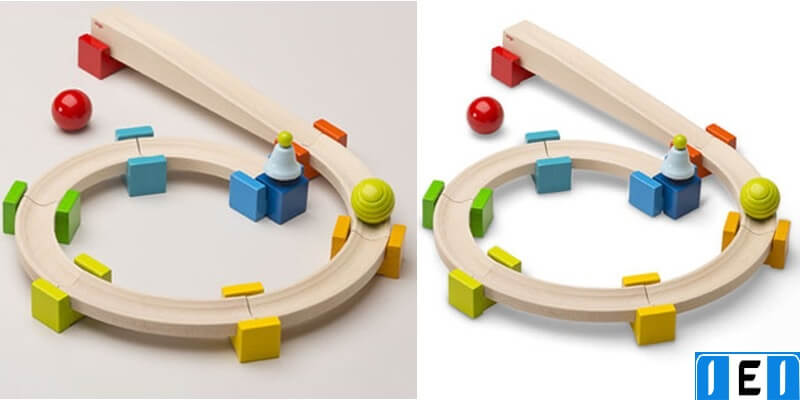In a world driven by visuals, the quality of an image can make or break a first impression. For brands, businesses, and creatives, every pixel matters. One of the most powerful tools in the image editing toolbox is the clipping mask service. This service goes beyond simple background removal, offering precision and flexibility to transform any image into a polished, professional piece. Whether you’re an eCommerce business, a fashion photographer, or a graphic designer, mastering the magic of clipping masks can elevate your visuals and enhance your storytelling.
In this article, we’ll explore the clipping mask service, how it works, and why it’s essential for creating high-quality images that captivate and convert.
What Is a Clipping Mask Service?
A clipping mask service is a specialized image editing technique that allows for the non-destructive masking of portions of an image. This process uses a layer to define which parts of an image will be visible and which will remain hidden. Clipping masks are incredibly versatile, making them a go-to solution for photographers, graphic designers, and marketers who need precise control over their visuals.
By applying a clipping mask, you can seamlessly blend images, hide or reveal certain areas, and create striking visual effects, all without altering the original image. It’s an essential tool for creating clean, sharp images that stand out.
Clipping Mask vs. Clipping Path: What’s the Difference?
While clipping masks and clipping paths are both used for image isolation, they are quite different. A clipping path involves outlining an object with a vector path to separate it from its background. In contrast, a clipping mask uses pixel-based layers to hide or reveal parts of an image.
The major difference is flexibility. Clipping paths are typically used for hard-edged objects like products, while clipping masks are perfect for softer, more complex subjects such as hair, smoke, or transparent objects. Masks are non-destructive, meaning you can easily adjust the visibility of the image’s elements without altering the original file.
How Does Clipping Mask Service Work?
Clipping masks may sound complex, but the process is relatively straightforward for a skilled designer. Here’s a step-by-step breakdown of how a clipping mask service works:
Step 1: Upload the Image
The first step is to upload the image that needs editing. High-resolution images work best, as they offer more detail and precision when applying a mask.
Step 2: Creating the Mask
Using advanced design software like Adobe Photoshop, a professional designer creates a mask on a layer that sits above the image. This mask will define which parts of the image will be visible and which parts will be hidden. The beauty of clipping masks lies in their non-destructive nature, allowing the designer to edit without permanently altering the original image.
Step 3: Defining the Visible Area
The designer then applies the mask to define the visible areas of the image. Black hides areas, while white reveals them. By carefully manipulating the mask, the designer can hide or reveal portions of the image with incredible precision.
Step 4: Blending and Enhancing the Image
Once the mask is applied, the designer can make adjustments such as blending the image with a new background or refining the edges of the subject. This process ensures the image looks seamless and professional.
Step 5: Final Touches and Quality Check
Before delivering the final product, the image undergoes a thorough quality check to ensure all elements look natural and polished. Adjustments like color correction or shadow enhancement may also be applied to give the image a professional finish.
The Magic of Clipping Masks: Why Use Them?
Clipping masks offer unparalleled control over your images. Here’s why they are essential for transforming ordinary visuals into extraordinary ones:
1. Precision and Flexibility
With clipping masks, you have complete control over which parts of an image are visible and which are hidden. This level of precision is perfect for complex subjects like hair, smoke, or semi-transparent objects. You can fine-tune your edits down to the pixel, ensuring your images look flawless.
2. Non-Destructive Editing
Unlike other image editing techniques, clipping masks are non-destructive. This means you can make adjustments to the image without permanently altering the original file. If you need to revisit the mask and make changes, you can do so without losing any of the original image’s details.
3. Creative Freedom
Clipping masks allow for endless creativity. Whether you’re blending multiple images, creating surreal effects, or simply cleaning up a product photo, clipping masks give you the freedom to experiment without the fear of ruining the image.
4. Consistent, Professional Results
For businesses, consistency is key. Clipping mask services ensure that your images look professional and polished across all platforms, whether they’re used for websites, social media, or print advertising. Consistency builds brand trust and enhances the overall visual appeal of your products or services.
Applications of Clipping Mask Services Across Industries
Clipping mask services are essential in a variety of industries. Let’s explore how different sectors use these services to enhance their visual content:
1. ECommerce and Product Photography
For eCommerce businesses, product images are critical to sales success. Clipping masks are often used to isolate products from their backgrounds, allowing them to be placed on clean, consistent backdrops. This technique is especially useful for creating product listings with crisp, professional images that draw in potential customers.
2. Fashion and Apparel
In the fashion industry, models, clothing, and accessories must be presented in their best light. Clipping masks are used to isolate models or garments from distracting backgrounds, ensuring that the focus remains on the subject. This level of precision is especially important for showcasing intricate details like lace, hair, or jewelry.
3. Marketing and Advertising
In the competitive world of marketing, visuals are often the deciding factor in a campaign’s success. Clipping masks give marketers the flexibility to blend images, create composite designs, or isolate elements for maximum impact. Whether it’s a sleek product shot or an eye-catching advertisement, clipping masks can make your visuals pop.
4. Photography and Digital Art
Photographers and digital artists often use clipping masks to refine their work. Whether they’re working on portraits, landscape photography, or digital art projects, clipping masks allow for detailed adjustments without sacrificing the integrity of the original image.
Advantages of Outsourcing Clipping Mask Services
Outsourcing clipping mask services can save time, ensure quality, and allow you to focus on what you do best. Here are some of the key benefits of outsourcing:
1. Expertise from Skilled Professionals
Clipping masks require a high level of skill and attention to detail. Professional designers have the expertise to create precise, seamless masks that result in polished images. By outsourcing to experienced professionals, you can ensure that your images meet the highest standards.
2. Time and Cost Efficiency
Editing images can be a time-consuming task, especially when working with a large volume of images. Outsourcing clipping mask services allows you to focus on other aspects of your business while the experts handle the image editing. This not only saves time but can also be more cost-effective than handling the work in-house.
3. Scalable Solutions
Whether you need a few images edited or hundreds, professional clipping mask services can scale to meet your needs. This flexibility is particularly useful for businesses that experience seasonal fluctuations in demand, such as eCommerce stores.
4. Fast Turnaround Times
Many professional clipping mask services offer fast turnaround times, ensuring that your edited images are ready when you need them. Whether you’re working on a tight deadline or planning a large project, outsourcing can provide the quick results you need.
How to Choose the Right Clipping Mask Service
Choosing the right clipping mask service provider is crucial to achieving the best results. Here are some tips to help you find the right fit:
1. Check Their Portfolio
A provider’s portfolio will give you a sense of their experience and expertise. Look for a range of work that demonstrates their ability to handle different types of images and levels of complexity.
2. Compare Pricing and Services
While cost is an important consideration, make sure you’re not sacrificing quality for a lower price. Look for a provider that offers competitive rates while delivering professional results.
3. Read Reviews and Testimonials
Customer reviews and testimonials can give you insight into the provider’s reliability and the quality of their work. Positive feedback from previous clients is a good indicator that the service is trustworthy.
4. Ask About Turnaround Times
Ensure that the provider can meet your deadlines, especially if you have time-sensitive projects. Fast turnaround times are often a critical factor in choosing the right service provider.
Conclusion
The clipping mask service is a powerful tool for transforming images, offering precision, flexibility, and creativity that can’t be matched by other editing techniques. Whether you’re an eCommerce brand looking to refine product photos or a photographer seeking to enhance your portfolio, the magic of clipping masks can take your visuals to the next level. With non-destructive editing, professional-quality results, and the ability to fine-tune every pixel, clipping masks ensure that your images captivate and engage your audience.
FAQs
What is the difference between a clipping mask and a layer mask?
A clipping mask uses one layer to control the visibility of another, while a layer mask directly affects the visibility of the layer it’s applied to.
Can clipping masks be used in any design software?
Most advanced design software, such as Adobe Photoshop and Illustrator, supports clipping masks.
Do clipping masks work for all types of images?
Clipping masks are best for images where precise control over visibility is needed, such as hair, smoke, or transparent objects.
How long does it take to apply a clipping mask to an image?
The time depends on the complexity of the image. Simple images may take a few minutes, while more complex images could take longer.
Can I undo or adjust a clipping mask after it’s applied?
Yes, clipping masks are non-destructive, meaning you can easily adjust or undo them without altering the original image.
Experience Perfection: Claim Your Free Trial Today!
Get a firsthand look at our exceptional services with a no-obligation free trial—start transforming your visuals today!













